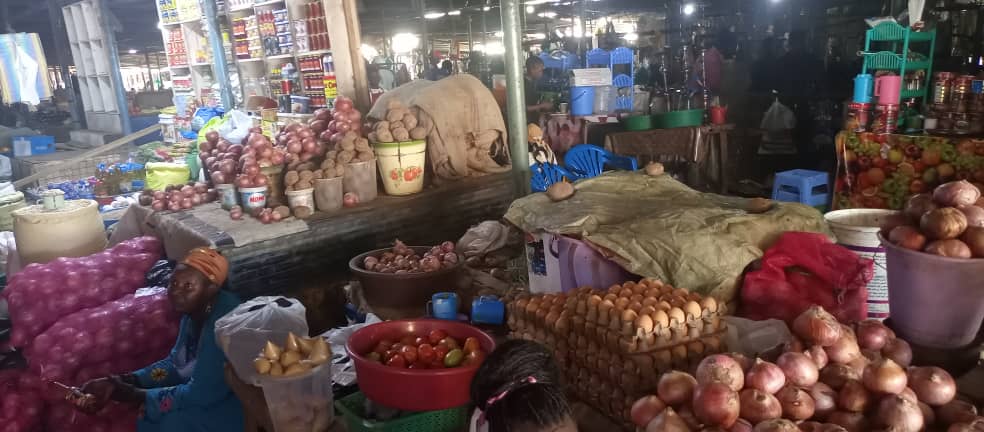Some residents of Juba have expressed concern over high commodity prices in the markets, despite the local currency making significant gains and remaining stable against the US dollar.
This came after a rise in the prices of food items at the onset of Easter.
A survey carried by Eye Radio in Konyo-konyo market on Tuesday indicates that a 20 liter Jerry can of cooking oil was previously sold at 17,500 SSP and is now being sold at 18,000 SSP showing an increment of 500 SSP.
Maize flour was sold at 13,500 SSP and has increased to16, 000SSP and in other places it costs one 16,500 to 17,000 SSP for 50 kilograms of maize flour.
10 kilograms of onions costs 13,000 SSP in the wholesale shop.
In the retail shops, consumers buy maize flour at 500 SSP, beans at 500 SSP, lentils at 100 SSP and rice at 800 SSP per kilogram.
The citizens call on the government to regulate prices of items in the market to make it affordable for everyone.
Some of the consumers in Konyo-Konyo spoke to Eye Radio on Tuesday.
“Sometimes you find the items have gone high and after days you find they have come down. There were slight changes but again went high,” Rebecca Gordon, a resident of Juba told Eye Radio.
“We don’t know because we are just people who buy things. Actually we will push like that, if we find it high, we will buy like that, if we find it high, we will buy like that,” Rebecca concluded.
“These things are actually expensive, meat is expensive, flour is expensive, everything is expensive, even sugar is expensive. Sugar has risen to twenty thousand and small one to ten thousand,” Lona Poni told Eye Radio at Konyo-konyo market.
“We buy like that. We the poor people, we buy them in small quantities, what to do? The things are expensive,” Lona said.
“During the last time, even during the time of the pandemic, at least things were not expensive but this time, everything is increasing even though no one knows the reason but we are just asking the government at least to see the solution,” David Ladu John told Eye Radio on Tuesday.
“Some families are suffering because of this high price of commodities. We are just managing what we can manage because now you can’t manage everything,” John said.
A trader who spoke on condition of unanimity and refuted that the prices have remained stable during Easter festivals up to date.
However he admits, there was a slight increment in the prices of commodities before Easter.
“The market before and after Easter is still the same. The increments were before Easter. We encourage them to move along the market and see the difference in the market,” one of the traders who don’t want to be identified told Eye Radio on Tuesday.
“What affects the market now is the demand of the goods and if that amount of the goods demanded are not in the market, it will lead to high increment of the items.
“Before, the oil was thirteen thousand or twelve thousand five hundred since the high demand in oil has now reached 18,500 or 19,000 pounds,” the unnamed trader said.

